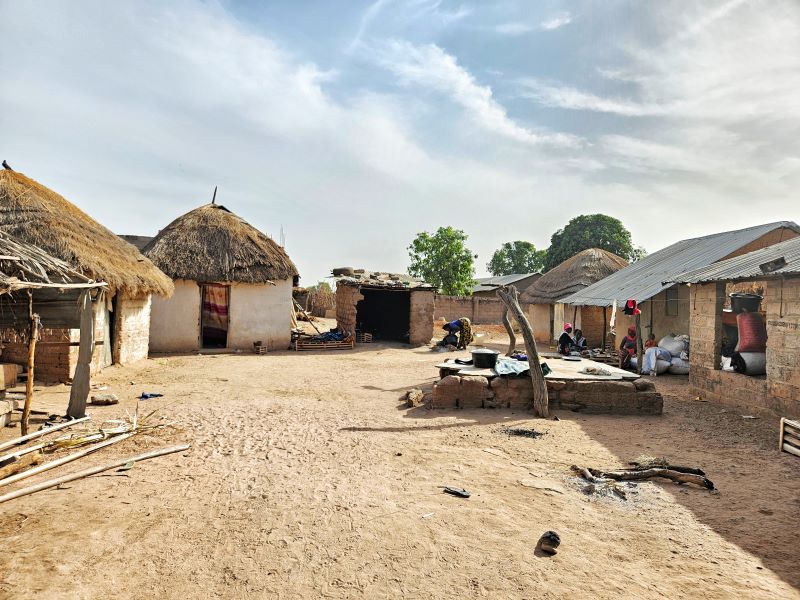
Water Charity’s Water For Everyone – The Gambia program has launched a new solar-powered water project in the Central River Region of The Gambia.
Location of Project: Tenegfara Village, Niamina East District, Central River Region, The Gambia, West Africa; GPS Coordinates: N13°37.500 W015°01.311
Community Description
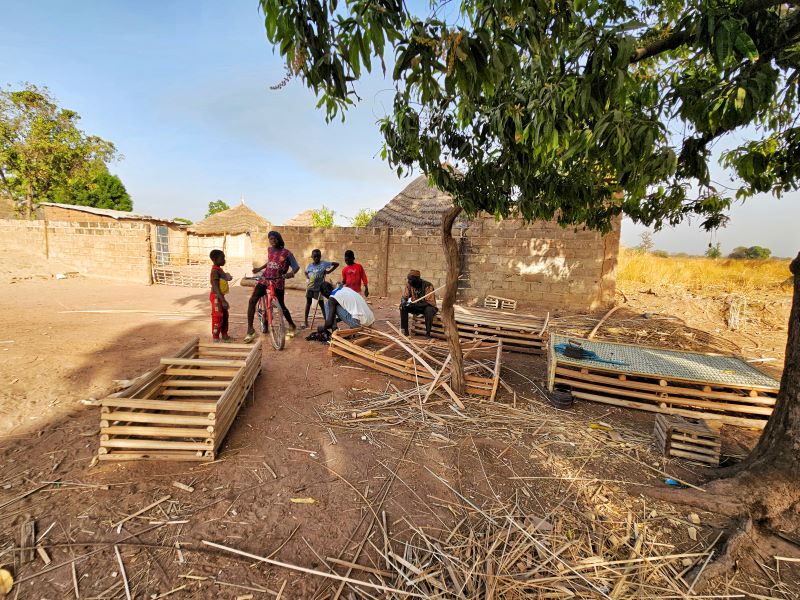
Tenengfara is a village located about 8 kilometers east of Kudang along the Trans-Gambia south bank Highway in the Central River Region. The village’s population is around 2000 people, and it is made up of diverse ethnic groups, including Mandinka, Wollof, Sarahule, Fula, and Bambara. Despite the diversity, the community lives together in harmony and tolerance, avoiding tribal conflicts. The village is composed of 53 households and 39 compounds. It is a traditionally subsistence farming community that grows rice, groundnut, and millet. Half of the crops are consumed locally, while the remaining is sold in local markets called “Loumo”. However, traditional herdsmen called Walo often come from northern Senegal to Tenengfara for grazing. This often has some severe consequences on the environment and results in confrontations at times.
Problem Addressed
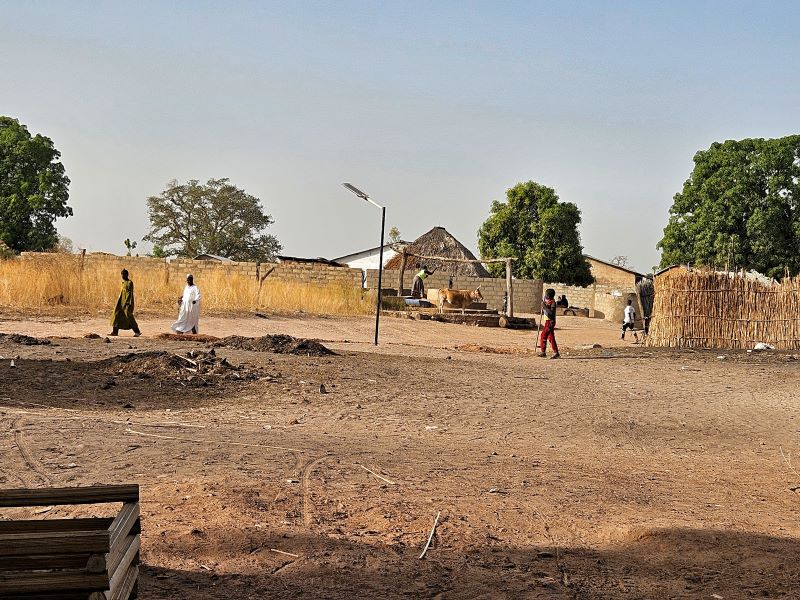
The community is facing a significant problem with the lack of access to clean drinking water. The current water source is not sufficient for the community, which forces people to use open wells that can cause illness. The village relies heavily on subsistence farming for income and staple foods, which is risky due to various challenges. Climate change has made the rainy season shorter, soil fertility is low, and agricultural pests like locusts can cause significant damage.
To fetch water, women and children sometimes have to wake up before dawn and wait in long lines at the well. However, the water level lowers quickly, and the water becomes unavailable, causing a lot of inconvenience.
Project Description
The project will include the following:
Stage 1: To upgrade and improve the current water source infrastructure, we will build a fully braced 6-meter galvanized iron tower and mount a 5,000-liter triple coated water storage tank on it. We will ensure that all work is effectively executed and monitored for quality assurance, and we will provide a warranty for the work. Additionally, we will install 300 watts solar panels to boost the Grundfos pumping system. The system is capable of delivering 60,000 liters of water per day, which is sufficient to cater to the water needs of the village and two nearby villages.
Stage 2: In this stage, pipes will be laid from the water tower to ten different water points (taps) across the village. This work will be done by a contractor with the assistance of the villagers. The ten water points will be placed strategically to make water more accessible to all the villagers. The pipes and plumbing materials will be of high-quality to withstand the harsh environmental conditions in the area. Regular water quality testing and treatment will also be carried out.
Moreover, two stand taps out of the ten will be installed at the exit of the village to help nearby villages that also suffer from water scarcity. This project will not only benefit the village of Tenengfara but also its nearby villages, thus benefiting more than 3000 people in total.
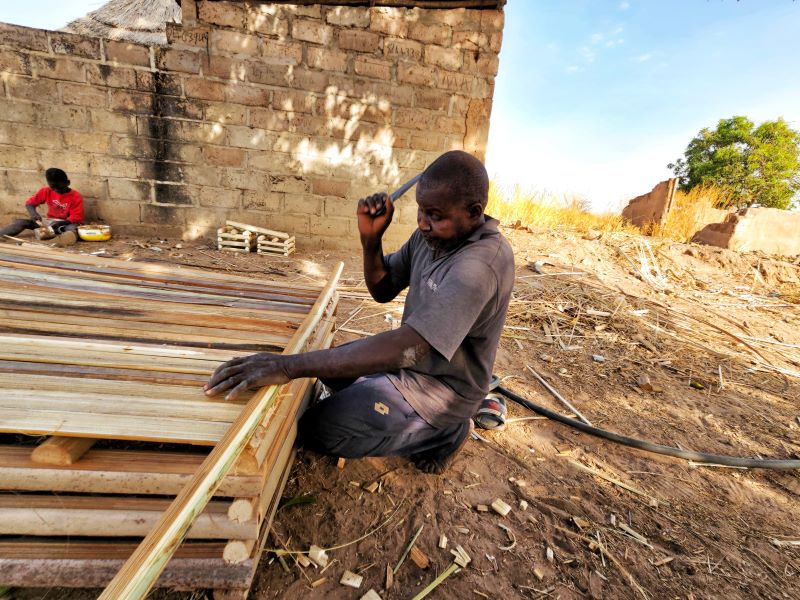
Community Participation
The community will contribute to the project by providing manual labor such as digging trenches and laying pipes. They will also supply the gravel and sand required for the project. Additionally, any other necessary manual labor will also be provided by the community. The village will provide accommodation and meals to the workers.
Monitoring and Maintanence
The community has established a reliable and trustworthy Water Management Committee to oversee the sustainability of the water project. The committee is gender-balanced, comprising of three men and three women. After the completion of the project, the Water Management Committee will be further trained on the Community Water Management Model. The training will also sensitize the community on the importance of maintaining the taps and the entire water system to ensure security and durability. The committee members will regularly visit taps to check if they are functioning correctly.
At the same meeting, it was decided that every compound head would pay a token monthly to a bank account that would be opened by the village water committee. The account would have three mandatory signatories, and the collected amount would be saved for future maintenance and repair. The committee will be transparent and audited in the financial transactions. They will report monthly to the villagers at the Bantaba (village square), and the Alkalo (village head) will coordinate the reporting. Through this mechanism, the community will maintain a sense of ownership and responsibility for the overall sustainability of the project. Three individuals have been identified to be in charge of monitoring and controlling the solar-powered water borehole system after the completion of the project. The contractor will train these three individuals on the usage of the water system and how to report any faults. They will also safeguard the well-being of the solar installation systems.
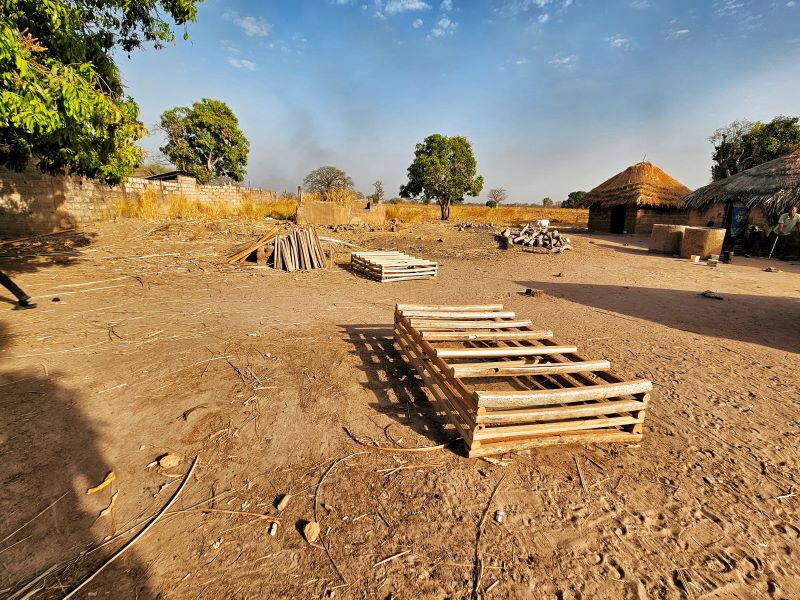
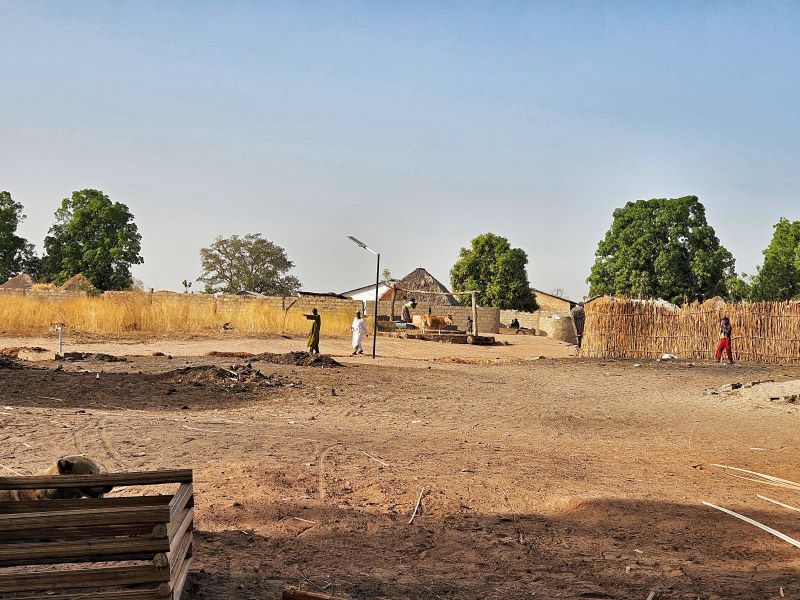
NB: The Water Charity Program Director, Ebrima Marong, will conduct routine visits to the community to ensure the system is functioning properly, and to assess the effectiveness of the water management committee.

The funds for this program have been advanced by Water Charity. Your donation using this Donate button will ensure that we have funds available to accomplish this project. Kindly donate using the button.